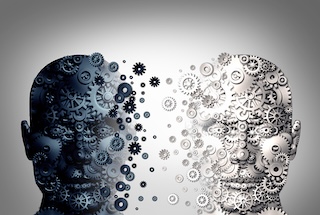January 30, 2025
by Elizabeth Pratt

Those living with multiple sclerosis who are pregnant have a greater chance of experiencing mental illness during pregnancy and in the first few years following birth.
Research published in Neurology found that pregnant people with MS had a 26% increased risk of mental illness during pregnancy when compared with pregnant people without MS and a 33% increased risk of mental illness after birth.
[More]
August 6, 2024
by Patricia Tomasi

A new study published in the JAMA Psychiatry looked at accelerated intermittent theta-burst stimulation and treatment-refractory bipolar depression. "This study looks at treatment of severe refractory bipolar depression,” study author Dr. Yvette Sheline told us. “It uses magnetic stimulation called TMS—transcranial magnetic stimulation, which has been used for the past decade to treat depression.”
[More]
June 4, 2024
by Patricia Tomasi

A new study published in the Journal of Biological Psychiatry looked at a potential causal risk factor for bipolar disorder. “We sought to identify specific metabolites that may play a causal role in bipolar disorder,” study author David Stacey told us. “We hoped that would tell us something about the underlying aetiology while potentially highlighting new lifestyle interventions or drug targets.
[More]
June 26, 2021
by Elizabeth Pratt

Women at increased risk of postpartum psychosis show altered connectivity in networks of the brain responsible for planning, organisation and the completion of short and long-term tasks. Currently, there are no biological markers that identify who will develop postpartum psychosis. But researchers from King’s College London have identified altered connectivity in the brain networks of women with postpartum psychosis, which could pave the way for better identifying women at risk of the condition.
[More]
June 1, 2021
by Patricia Tomasi

Bipolar disorder is a mental illness that includes depressive and manic episodes. It affects about two per cent of people around the globe. The first line of treatment for bipolar disorder is a drug called lithium. Unfortunately, about 70 per cent of bipolar disorder patients don’t respond to it. A new study looked at whether genes had a role to play in lithium response in bipolar disorder patients.
[More]
October 22, 2019
by Patricia Tomasi

Bipolar disorder is a neuroprogressive illness and early detection is vital. One of the most potent triggers for a bipolar episode is childbirth. Unfortunately, research on postpartum bipolar disorder (PPBD) is scarce, however, a new study published in Psychiatry Research found that nearly 50 per cent of postpartum women had hypomanic symptoms.
[More]
April 29, 2019
by Elizabeth Pratt

Children who grow up in poor neighbourhoods are at an increased risk of developing a psychosis-spectrum mental illness like schizophrenia or bipolar disorder by the time they reach middle adulthood. Researchers say the finding of the study suggest interventions aimed at improving neighbourhoods and assisting children displaying atypical social characteristics could prevent the conditions from developing.
[More]
September 1, 2018
by Elizabeth Pratt

Having a former smoker in their social circle may help those with serious mental illness quit smoking
[More]
March 13, 2018
by Tracey Block

Setting the clock ahead an hour in the spring, or back an hour in the fall, is known to make people feel sleepy and cranky while they adjust to the time change. The body's natural circadian rhythm can be briefly--and negatively--impacted by these time changes. And now, researchers are recognizing that jet lag from long distance travel can cause negative effects not only to one's physical--but to one's long-term psychological health.
[More]
January 29, 2018
by Patricia Tomasi

Annual Canadian campaign to raise awareness for mental health takes place on January 31st this year. Bell Let's Talk talks to everyday Canadians about their struggles.
[More]